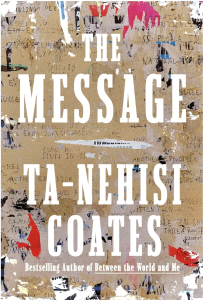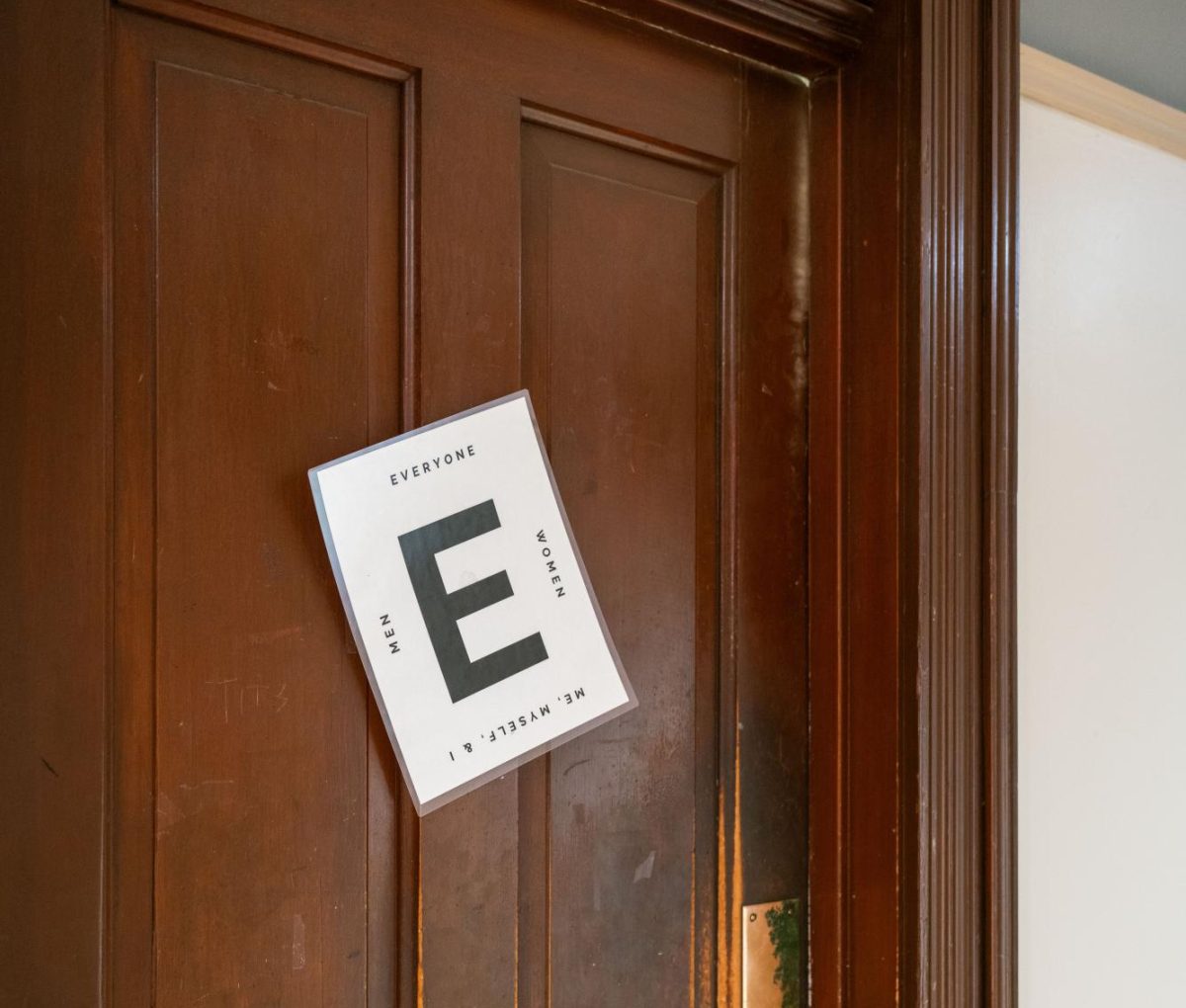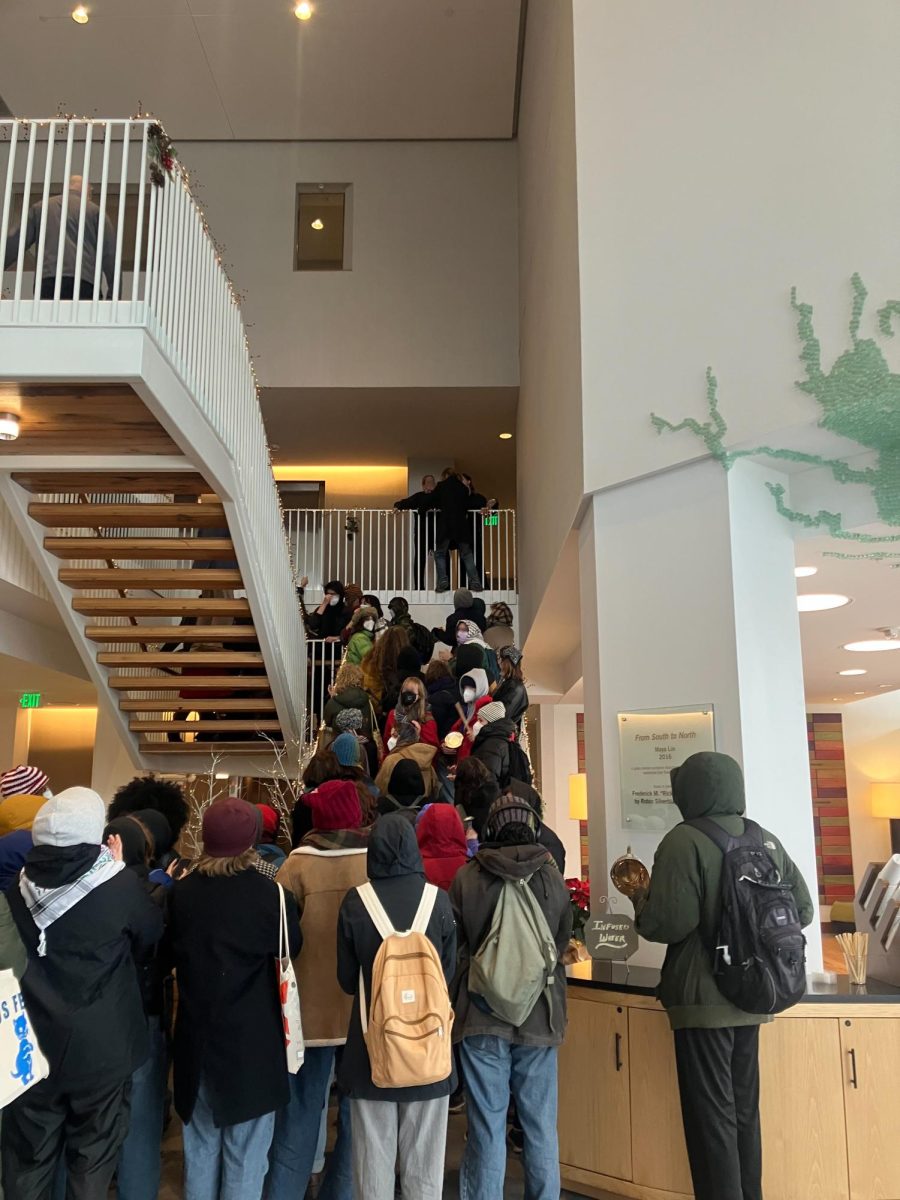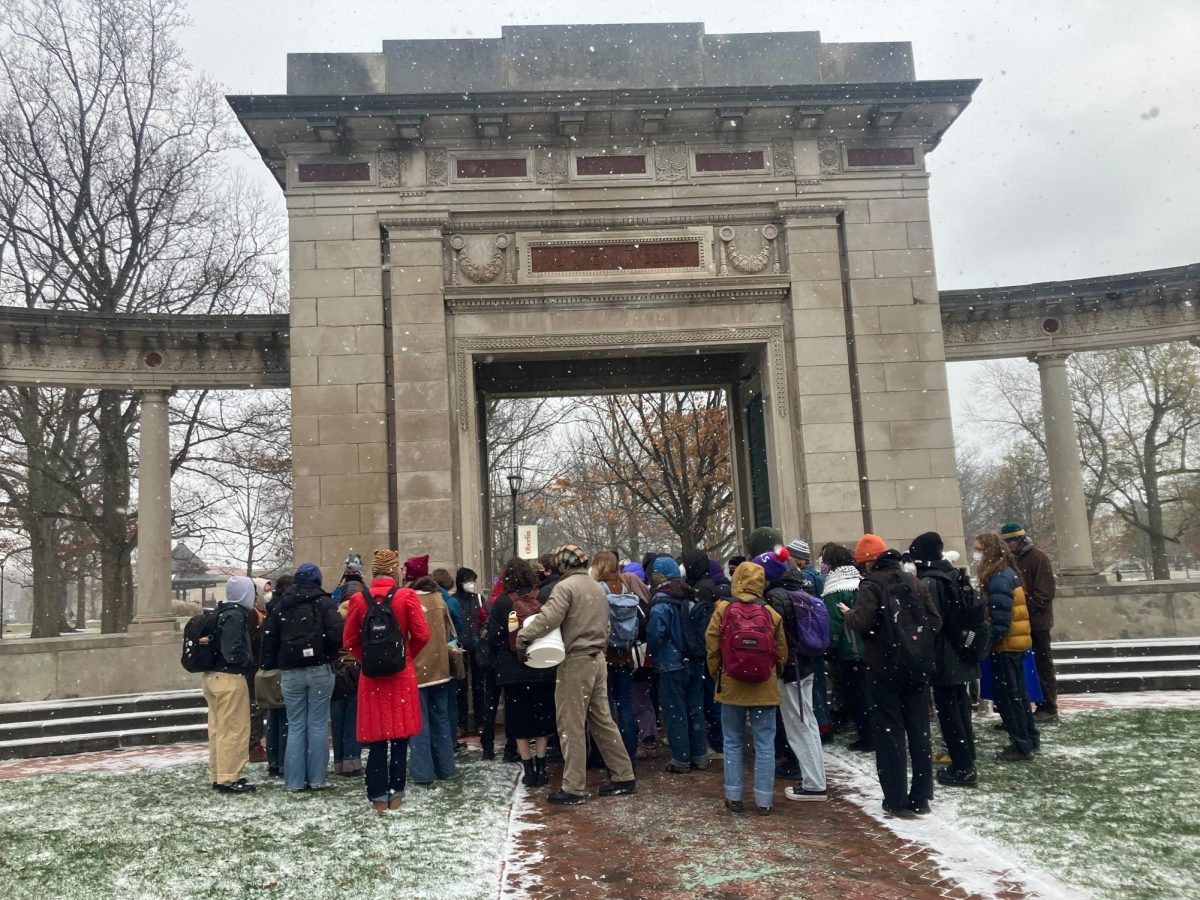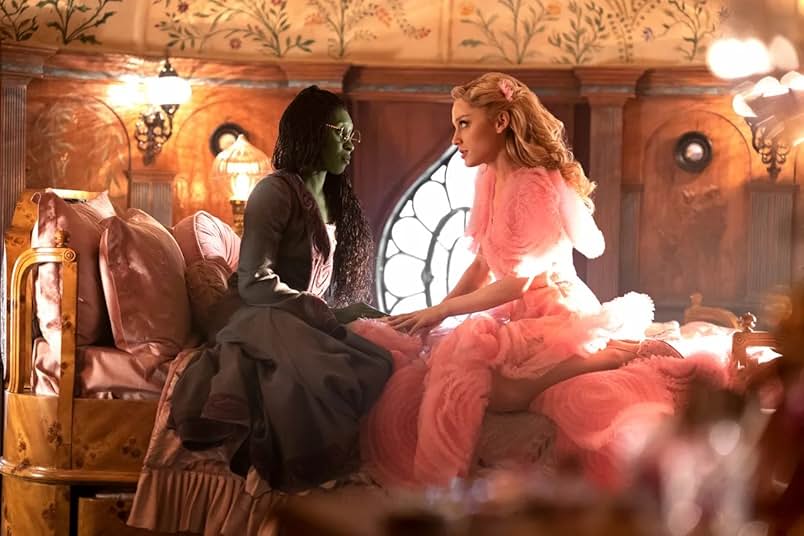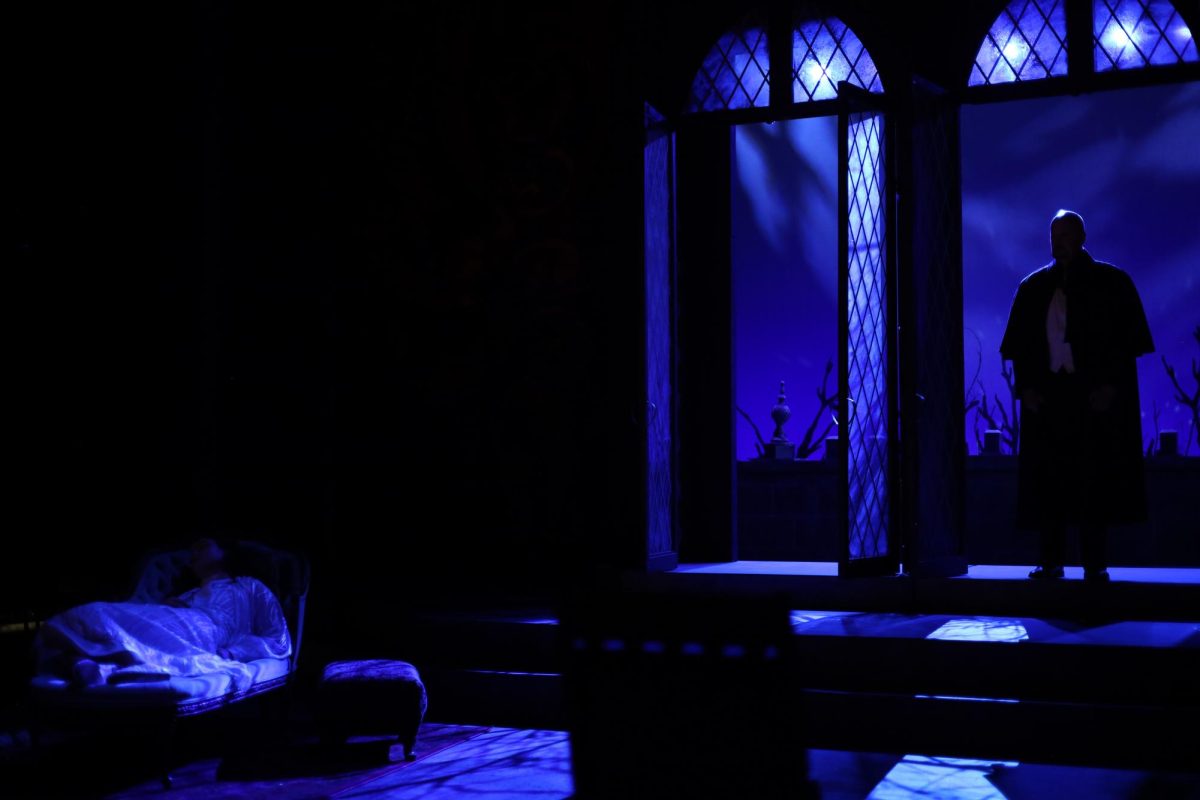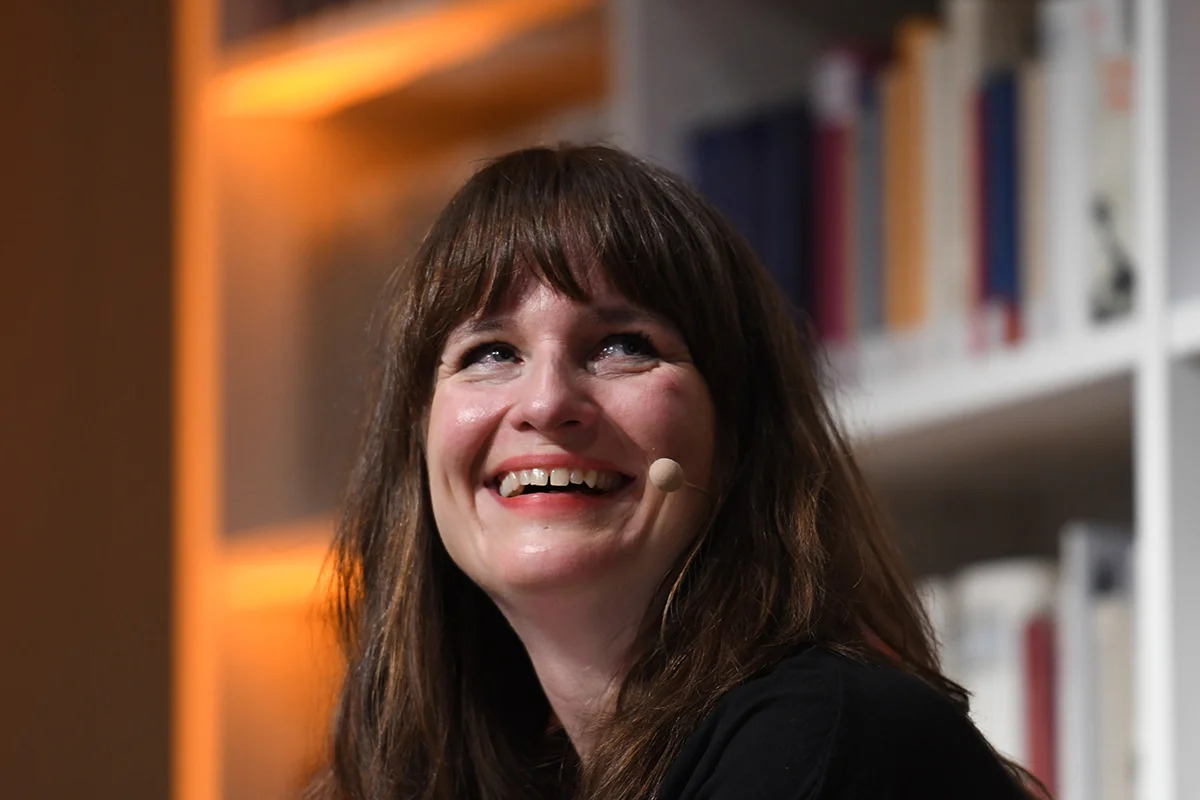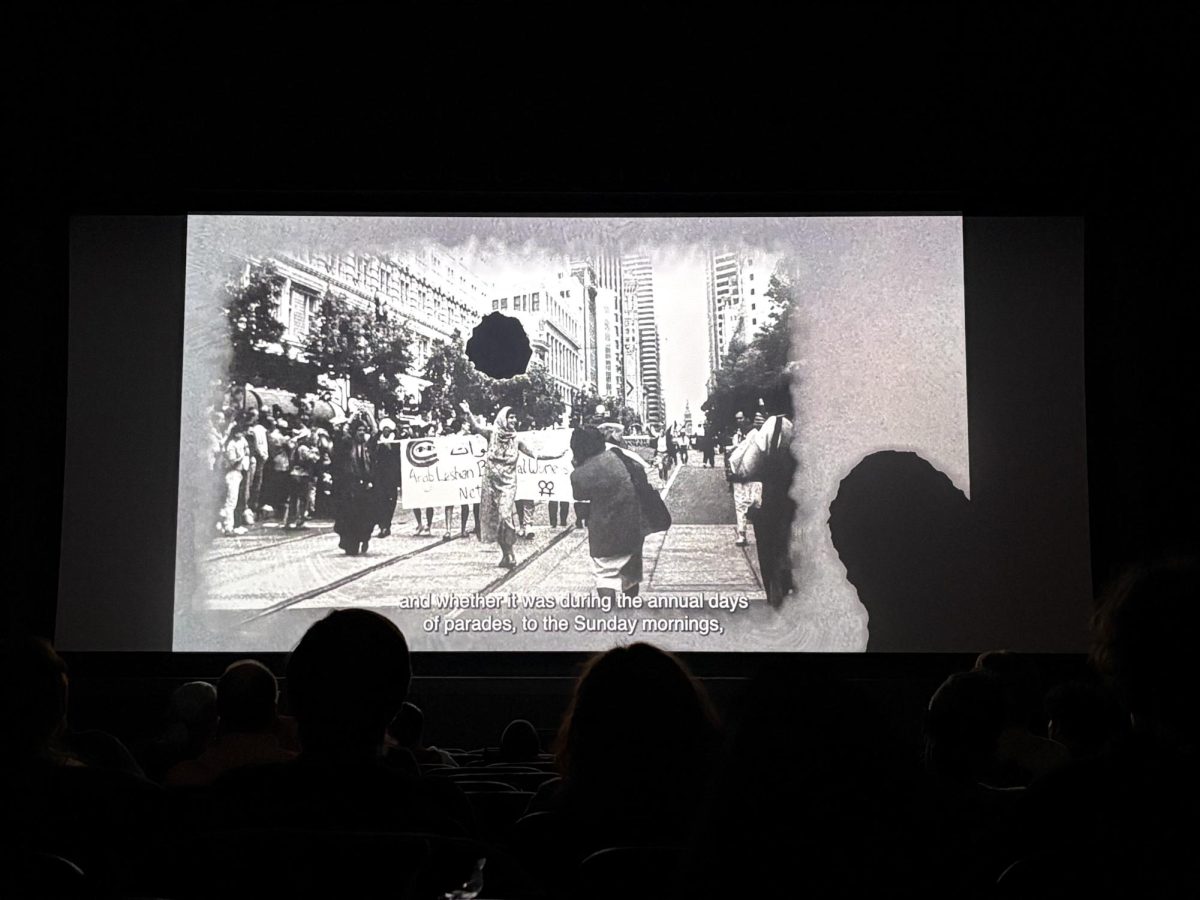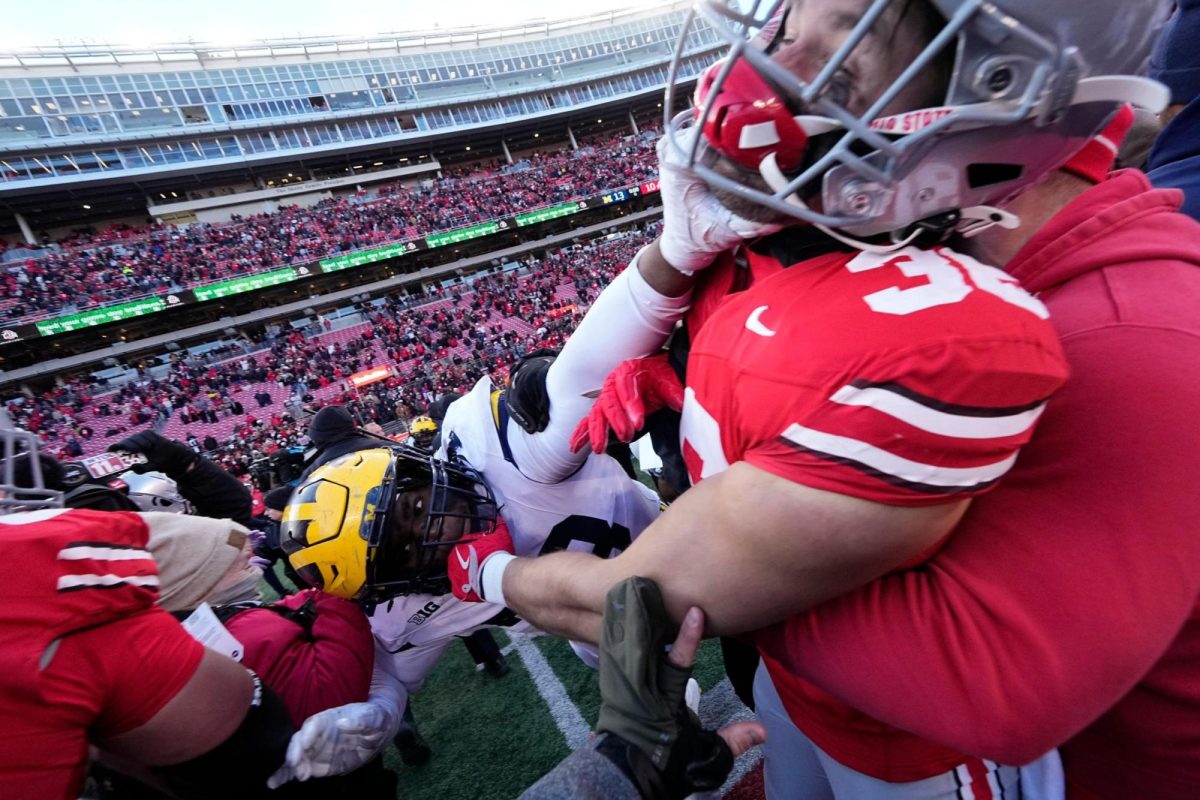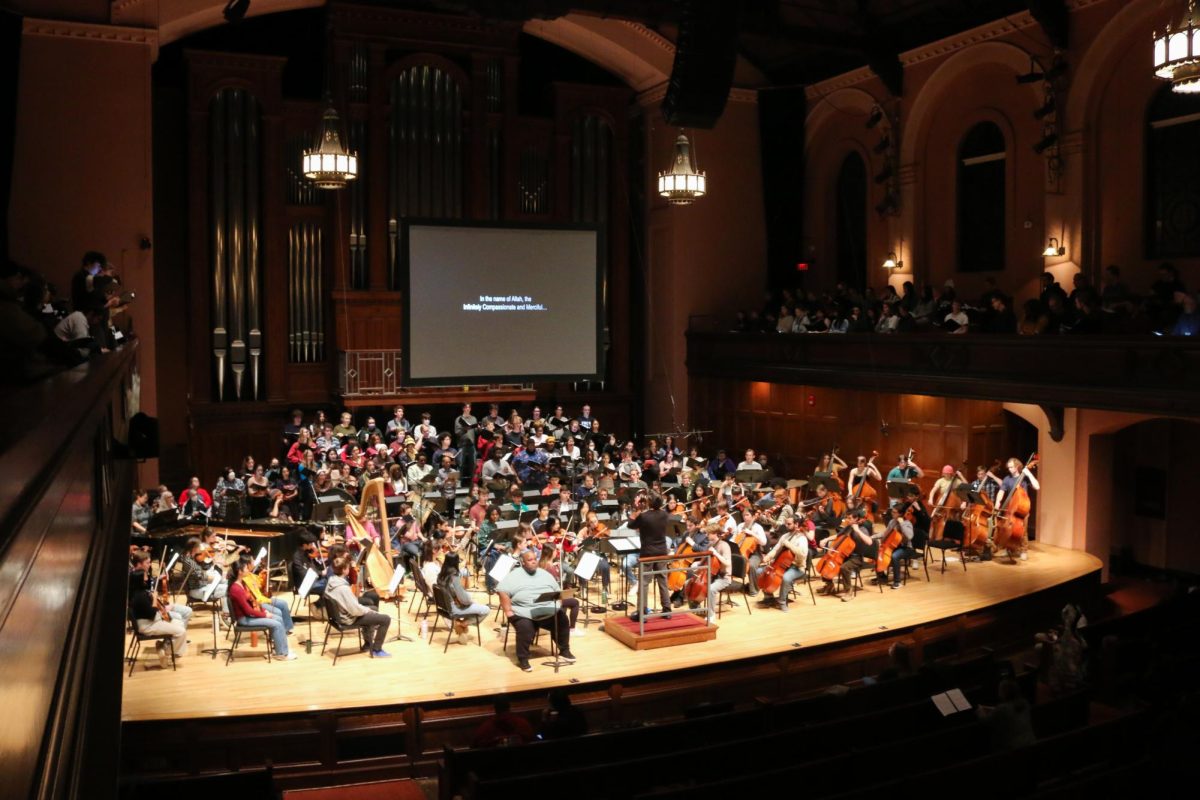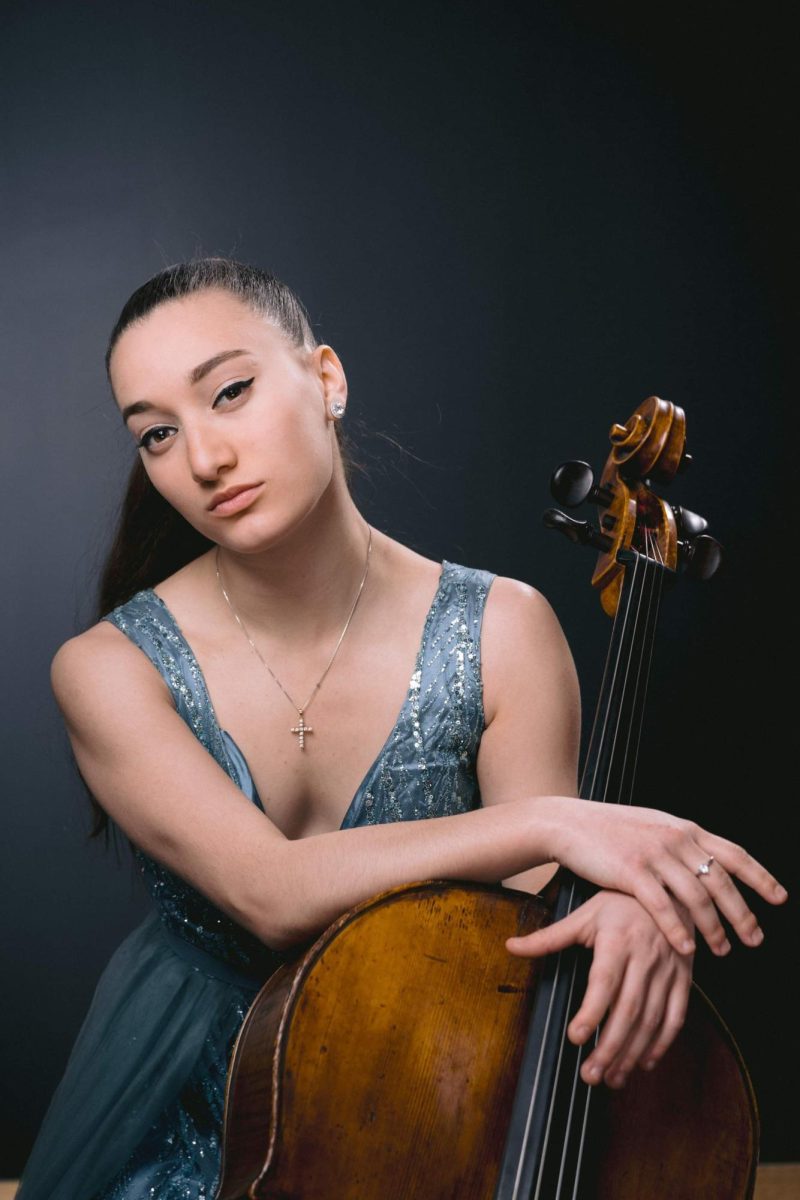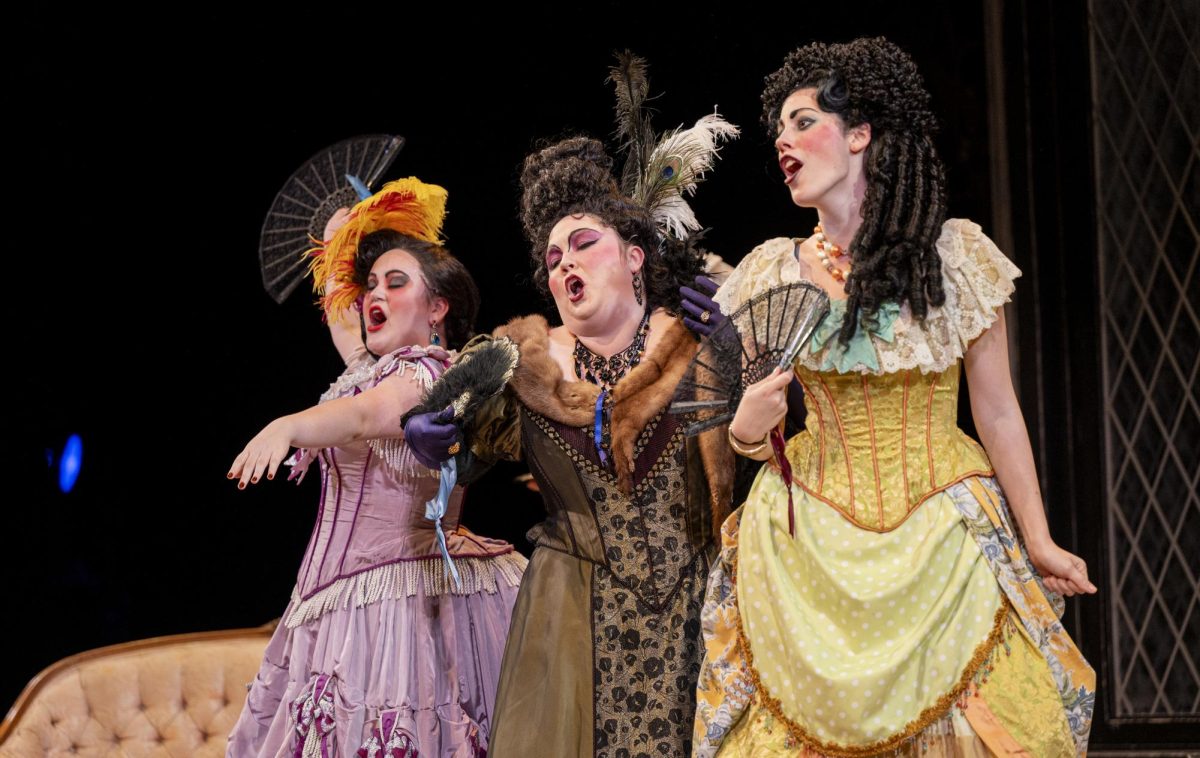Cabaret Succeeds on Every Front
May 3, 2013
In the Oberlin Musical Theater Association’s production of Cabaret, which ran in Wilder Main from April 25 through 27, director and College junior Hayes Biche led his cast and crew in a beautiful, engaging and incisively acted version of the classic musical; everything from the use of a pit orchestra to the choreography impressed.
Cabaret is set in the 1930s and tells the story of young Cliff Bradshaw, played by College junior William Hofmann, who travels to Berlin for the first time with his portable typewriter and dreams of being a famous novelist. He meets the star cabaret dancer Sally Bowles, played by College senior Nona Brown, at the Kit Kat Club. Their whirlwind romance forms the core of the rest of the play, while the forces of history and fate gather around them.
Wilder Main is a tricky space in which to stage theatrical productions, but the crew rose to the challenge well. The creative use of raised platforms as storage space allowed for smooth scene changes between the Kit Kat Club and Fraulein Schneider’s boarding house. The pit orchestra, situated somewhere beyond the audience’s sight, delivered lively music that synced seamlessly with the movement of the performers.
The EMCee, College junior AJ Palacio, was washed in a bright spotlight as the first act opened. His face was covered in cakey, mime-like makeup with bright red lips. He often addressed the live audience indirectly by speaking to a crowd of actors sitting in the Kit Kat Club, complicating when and where the fourth wall was being broken. The EMCee’s role crystallized as the show evolved, and he repeatedly intruded to reinterpret or narrate for the audience’s benefit — often foreshadowing danger or a twist in the plot.
The overall quality of the acting was phenomenal. Brown inhabited her role as Sally Bowles with such ease and ability that it was easy to become wrapped up in her magnetic allure. Brown’s character calls herself “ravishing and sublimely seductive,” and that’s precisely what she was. Hofmann was appropriately serious and vulnerable as Cliff, the earnest American writer. He escalated the tension in his relationship with Sally, as the more tender of the two but also the one more likely to lose his temper.
The choreography, designed by College senior Samantha Bergman, was incredibly creative. The excellent number for “Don’t Tell Mama” was a hilariously on-point interpretation of the song’s lyrics and turned the working cabaret dancer into an empowered sexual being. “Money” brought Brown and Palacio together as they led the other dancers in a frenetic song and dance that increased in mania as the word “money” was repeated at varying volumes and tones.
Herr Schultz, played by College senior Matthew Brewer, was a bumbling, oblivious character and an audience favorite, particularly because of his endearing romance with Fraulein Schneider, played by College first-year Emma Leiken. Leiken was truly convincing as the overwrought boarding house spinster. Her singing was strong and tonally fit the role, yet it seemed that she and some of the actors playing German characters struggled to maintain the accent while singing.
Cabaret makes a case for the value of human and romantic companionship. From the brief scene in which lonely club-goers call to one another and join in partnered dances, to a song titled “Married” that rejoices in the value of marriage, to the unexpectedly open song “Two Ladies” celebrating polyamorous love, the musical welcomes an inclusive vision of sex and offers myriad models of relationships.
History directly informed the arc of the play. From comments early on about German perception of Americans (shock at the idea of Cliff being a “poor American”) to the moment when the Nazism of Ernst Ludwig, played by College sophomore Colin Anderson, is revealed, it’s evident that this play inhabits the moments in history building to World War II.
As Act I closed with the stage nearly full, the actors froze with arms extended outward as they finished the haunting, nationalist song “Tomorrow Belongs to Me (Reprise).” The Emcee entered and wandered among them, waving his hands before them and drawing attention to elements of the scene. The audience had a moment to try to absorb it all — the determined hatefulness of Ludwig, the fear on Frau Schneider’s face, the dark anger of Cliff, the obliviousness of Sally — before the air was filled with a raucous, alarming recording of a German crowd’s staccato chanting. This production did a fantastic job of making a spectacle of such key moments.
Eventually, the threat of the outside world could no longer be pushed back. Palacio and Brown, dressed in a monkey mask, danced flirtatiously until he sang the last line, “If you could see her from my eyes, she wouldn’t look Jewish at all,” effectively snapping the audience back into the stark peril of 1930s Germany.
Thereafter, the personal and the political became further entwined: Schneider broke off her engagement with Schultz when she realized that his Jewish background endangered her. In the song “What Would You Do,” the play asks the audience to imagine themselves in that moment of history, to look at the livelihoods at stake and perhaps to refrain from moralizing. Things began to unravel for the leading couple as well, with Sally unwilling to leave for America with Cliff. Brown delivered her final song, “Cabaret,” with resounding power, and the lyrics here repeated those from the opening, though with a markedly different mood that builds to a crescendo.
Just before the musical closes, Cliff reads aloud the first lines of his novel — the first he’s been able to write the whole play. In the end, Cabaret is a tale of falling in love with the city of Berlin and of exploring the many kinds of companionship and relationships people long for or seek out. It believes in life as a performance and the cabaret as an escape. Cabaret’s characters uncover how fantasy can become wrapped up with truth, the unthinkable becoming real in ways that can unsettle their private lives, even as this tumult echoes what is happening in the Germany imagined just beyond the walls of the theater.


